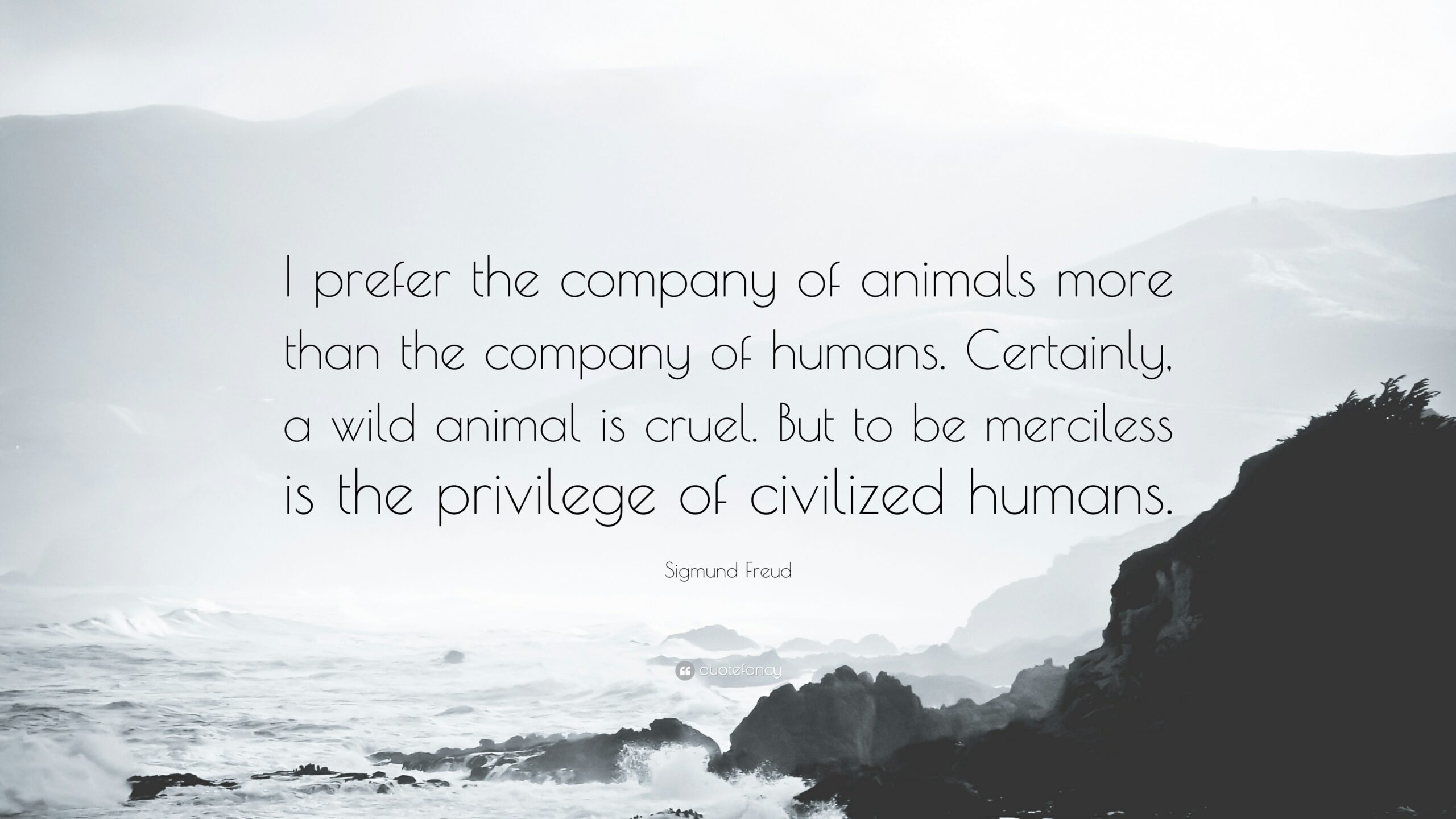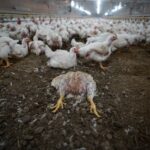The concept of cruelty, often laden with moral implications, invites scrutiny and raises profound questions about the intrinsic nature of beings. Particularly, the juxtaposition between human beings and animals often leads to an examination of behavioral characteristics that could be perceived as cruel. It is frequently posited that humans exhibit a more profound capacity for cruelty than their animal counterparts. This rhetorical stance warrants a meticulous exploration, as it encompasses both moral philosophy and biological predispositions.
To embark on this inquiry, it is essential to define “cruelty.” Typically understood as the intentional infliction of suffering, cruelty can manifest emotionally, physically, or psychologically. Within this framework, the behavior of humans can appear markedly more detrimental, given our capacity for abstract reasoning and long-term planning, which allows for premeditated acts against others, whether humans or non-human animals.
One significant argument hinges on the premise of choice and intention. Animals react predominantly on instinct, which can lead to violent behaviors primarily motivated by survival necessities, such as predation or territoriality. Conversely, humans possess the ability to make conscious choices. These choices may be influenced by socio-cultural factors, upbringing, or even societal norms that can sometimes glorify harmful actions. For instance, acts of bullying, systemic oppression, or even casual cruelty can emerge from human societies, often contextualized under the guise of authority or tradition.
Additionally, the concept of empathy—the capacity to perceive and resonate with the emotions and experiences of others—serves as a pivotal differentiator between humans and animals. While many animals display forms of empathy, especially among closely-knit groups, humans possess a unique ability to extend their empathetic responses beyond immediate kin or social circles. There is a propensity for humans to engage in acts that intentionally disregard the welfare of others, often rationalized through misguided ideologies or insidious traits such as narcissism or sociopathy.
To further dissect this notion, consider the hierarchical structures embedded within human societies. These structures perpetuate a normative framework that often condones or neglects cruelty, particularly towards marginalized groups. Systematic atrocities across history—abuse, exploitation, and genocide—exemplify an unsettling trend where human beings engage in forms of cruelty that can rival the most vicious acts observed in the animal kingdom. This societal endorsement or acceptance of cruelty poses an interesting dilemma; can a creature capable of such malevolence truly claim moral superiority?
The philosophical positions that enlighten this discussion also warrant attention. Ethical theories frequently emerge in debates concerning animal rights and human responsibility. Utilitarianism, for example, proposes that the morality of an action is determined by its outcome. In such a view, inflicting harm upon beings capable of suffering, whether human or animal, raises critical ethical implications. This becomes even more convoluted when considering industrial practices and factory farming, which exert significant suffering upon countless sentient beings. These practices evoke the question: do humans, by virtue of their choices, not enact a form of cruelty that animals, acting solely on instinct, do not?
This leads to another dimension of the conversation—the capacity for self-awareness and foresight. Animals may harm one another, driven by intrinsic impulses or immediate needs, but they generally lack the foresight to anticipate the ramifications of their actions. Humans, however, are acutely aware of consequences. Yet, this awareness does not always translate to humane behavior. The destructive environmental practices adopted for industry and convenience pose an existential threat to numerous species, demonstrating a unique brand of cruelty that persists even in the face of knowledge and urgency. The climate crisis, largely fueled by human action, raises an alarming question about the species’ responsibility towards other forms of life on Earth.
Furthermore, sociocultural conditioning plays a significant role in shaping perspectives on animals and cruelty. Many individuals are often desensitized to suffering, whether that be through media, societal norms, or simply a lack of direct interaction with the subjects of cruelty. This desensitization can lead to a dangerous apathy towards the plight of animals, as well as a minimization of their emotional experiences. It is particularly ironic that, in seeking the ‘evolutionary advantage,’ humanity often chooses to overlook the moral implications of its actions.
However, it is worth acknowledging that the narrative is not entirely one-sided. Many human beings exhibit altruism, compassion, and a desire for justice that significantly contrasts with the instinctual behaviors of animals. Human-led movements for animal rights, conservation efforts, and the promotion of empathy enhance the discourse surrounding this complex issue. This duality illustrates that while the potential for cruelty may be a distinct human characteristic, the capacity for profound goodness and change remains ever-present.
In conclusion, the assertion that humans may be more cruel than animals engages a multifaceted inquiry into morality, instinct, and societal norms. By scrutinizing intentions, consequences, and ethical considerations, it becomes increasingly evident that human cruelty often transcends that found in the animal kingdom. However, this reality also serves as a clarion call for reflection and transformation. Cultivating empathy and understanding can bridge the widening chasm between species, igniting conversations that refuse to sidestep the darker elements of our existence. Therefore, the quest to foster a more harmonious relationship with all living beings is not simply a noble endeavor; it is a moral imperative that demands immediate collective action.








